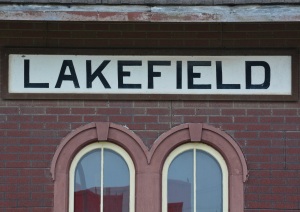“At the edge of the digital ocean”
A recent publication titled Impacts of the Digital Ocean on Education (DiCerbo & Behrens, 2014) talks about our transition from “digital desert” (limited, ephemeral and fragmented data collection systems and processes) to “digital ocean” (massive and exponentially-increasing reservoirs of data). Our day-to-day actions and movements generate a continuous exhaust cloud of data. The ‘Internet of Things’ will make data-gathering even more ubiquitous, personal and pervasive. How can this inform our granular understanding of students’ learning processes and learning needs?
DiCerbo and Behrens predict a shift from episodic, individual assessments that are disconnected from ‘real life’, toward seamlessly integrating assessment with learning processes. Learning is inherently collaborative, non-linear, self-determined. A new ‘language’ of assessment means harnessing “data in the wild”:
The digital ocean “is a world in which data are a side-effect, not the primary goal of interesting and motivating activity, and perhaps a world where ‘testing’ is a rare event, but assessment is ‘in the water.” (DiCerbo & Behrens, 2014:15)
The idea of assessment being “in the water” is, in many ways, the killer app for educators, given how hard it is to develop valid tools to measure authentic learning. For example, are multiple choice exams really relevant to 21st Century education and learning? They’re still widely used, and even when we use alternate assessment tools, we’re used to segregating learning from assessment. A data-saturated learning environment makes us uneasy, especially if we’ve grown up in the digital desert. It’s like seeing the real ocean for the very first time: beautiful and scary.
Of course, insitutional Learning Management Systems already harvest data about how often students log into the online environment, what they do, how much time they spend, and how much they contribute. Imagine extending this to seeing how students engage with the e-textbooks used in our courses? We can look at what text they ‘highlight’, where they go back and review, which pages are electronically marked and which are ignored, and how long it takes students to read a page. Game-based environments offer even richer data about time on task, interconnectedness and collaboration, persistence, and motivation. What’s ahead? The classroom is a computer. The lived environment is a computer. Everything we touch and do is a data point.
Right now, our systems are largely disconnected and siloed. But once they work together to present rich and textural understanding of student activities we are really into some serious conversations about ethics and boundaries related to privacy and data ownership. We also run the risk of conflating data with meaningful knowledge, and designing learning environments driven by data-gathering imperatives, versus students’ learning needs.
Like any good discussion paper, DiCerbo and Behrens pose more questions than they answer. That’s a good thing, because this might be right at the top of the education field’s most critical dialogues. Our feet are wet and the tide is coming in.
Related:





